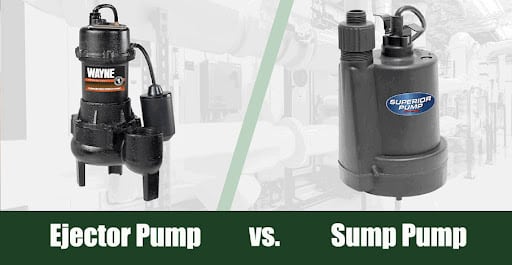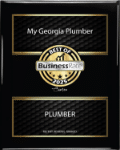
Sump Pumps vs. Sewage Ejector Pumps: What’s the Difference (and Why Should You Care)?
If you’ve ever walked into a basement and spotted a mysterious pump sitting in a pit, chances are it was one of two things: a sump pump or a sewage ejector pump. And while they may look alike—and sometimes even sit side by side—they’re doing completely different jobs.
Knowing which is which matters. Especially when something goes wrong.
Let’s break it down without the fluff.
What a Sump Pump Actually Does
Sump pumps are basically flood insurance for your basement.
If water starts to collect under your house—whether it’s from heavy rain, melting snow, or rising groundwater—the sump pump kicks in. It pulls the water out of the pit (called a sump basin) and pumps it away from your home, usually out into the yard or the street.
You need one if your basement has a habit of getting damp—or worse, if you’ve had water down there before. It’s there to keep things dry.
What it’s not? A sewage system. That’s where people get confused.
The Sewage Ejector Pump’s Job
Now here’s the other guy in the pit: the sewage ejector pump.
This one doesn’t deal with rain or runoff—it handles the stuff that goes down the drain inside your house. We’re talking about water from a basement toilet, shower, laundry machine, or sink.
The reason you need it? Gravity.
Since your basement plumbing sits lower than the main sewer or septic line, water (and everything else) can’t just flow out naturally. The ejector pump gives it a lift. It grinds up any solids and sends the wastewater uphill to the main line.
No pump, no flush.
How to Tell Them Apart
Here’s the quick and dirty difference:
-
Sump pump: Deals with clean-ish water from outside (rain, snow, groundwater). Keeps your basement dry. No smell.
-
Ejector pump: Deals with wastewater from inside (toilets, sinks, showers). Gets waste out of the basement. Can smell real bad if it fails.
Another easy way to tell? If the pit has a sealed lid with a vent pipe and a wider discharge line, it’s probably an ejector pump. If it’s open and just pumps water, it’s your sump.
What Can Go Wrong?
Sump pump stops working? You could be ankle-deep in water after a storm.
Ejector pump dies? Well… let’s just say it’s worse than a puddle.
Both of these pumps have specific jobs. And when they fail, it’s usually not subtle. Flooded basements, backed-up toilets, sewage smells—it’s not stuff you want to deal with on your own.
When to Call in Help
We’ve seen it all. At My Georgia Plumber, we’ve replaced burnt-out pumps, unclogged pipes packed with who-knows-what, and helped homeowners get things back to normal after one too many “just ignore it” moments.
If you’re not sure what kind of pump you’ve got—or if it’s doing what it’s supposed to—we can check it out, walk you through your options, and get things fixed without turning your basement into a money pit.
Call 770-592-0081 and we’ll get you sorted.










